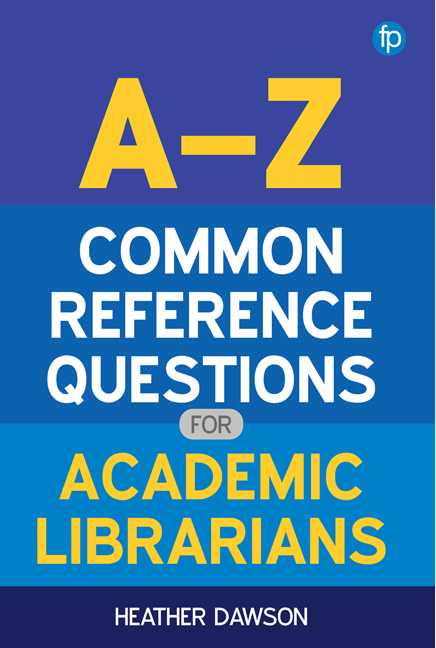Information Literacy
Published online by Cambridge University Press: 19 March 2020
Summary
Typical questions
• What is the Cephalonian method?
• I would like to see some examples of literature searching lesson plans.
Starting points
• The term information literacy is widely used by librarians and information professionals. The UK professional body CILIP defines it as ‘the ability to think critically and make balanced judgements about any information we find and use. It empowers us as citizens to develop informed views and to engage fully with society’ (www.cilip.org.uk/news/421972/What-is-information- literacy.htm).
• However, outside the profession other terms are often used when talking to academic staff and students. These include: information skills, or more generally library skills or literature searching skills.
• Library and academic staff are often interested in developing training programmes to encourage information literacy amongst staff and students.
• These resources offer starting points for those wishing to learn more about information literacy or develop their own teaching materials.
Recommended resources
Good starting points are national professional bodies of librarians as most have websites with definitions and competencies. A good example is:
CILIP Information Literacy Group [Specialist]
infolit.org.uk
Unmissable site for UK professionals. It provides news, information, hosts training events and has a wealth of links to relevant information literacy resources. These include frameworks and definitions of information literacy, resources for developing teaching and academic research. They include some materials designed for use in schools. It also supports:
• LILAC (www.lilacconference.com) – an annual international conference covering all aspects of information literacy. Past papers are accessible via the website.
• Journal of Information Literacy (ojs.lboro.ac.uk/JIL/index) – an open access peer reviewed title covering the theory, practice and method of information literacy.
Information Literacy Weblog
information-literacy.blogspot.com
Maintained by Sheila Webber, a faculty member in the Information School, University of Sheffield. This blog is an excellent way of keeping up to date with the latest developments. It curates the latest news, publications and resources worldwide.
Library, Information Science and Technology Abstracts [Specialist]
www.ebsco.com/products/research-databases/library-information-science- and-technology-abstracts
Free access to this key library and information science journal index, which includes abstracts of journal articles and reports on information literacy. Covers materials published since 1960.
LOEX
www.loex.org
International membership organisation supporting training and information literacy in libraries. Website has an archive of conference papers, plus a free directory of links to online tutorials, case studies and other recommended teaching and learning materials.
- Type
- Chapter
- Information
- A-Z Common Reference Questions for Academic Librarians , pp. 189 - 190Publisher: FacetPrint publication year: 2019



